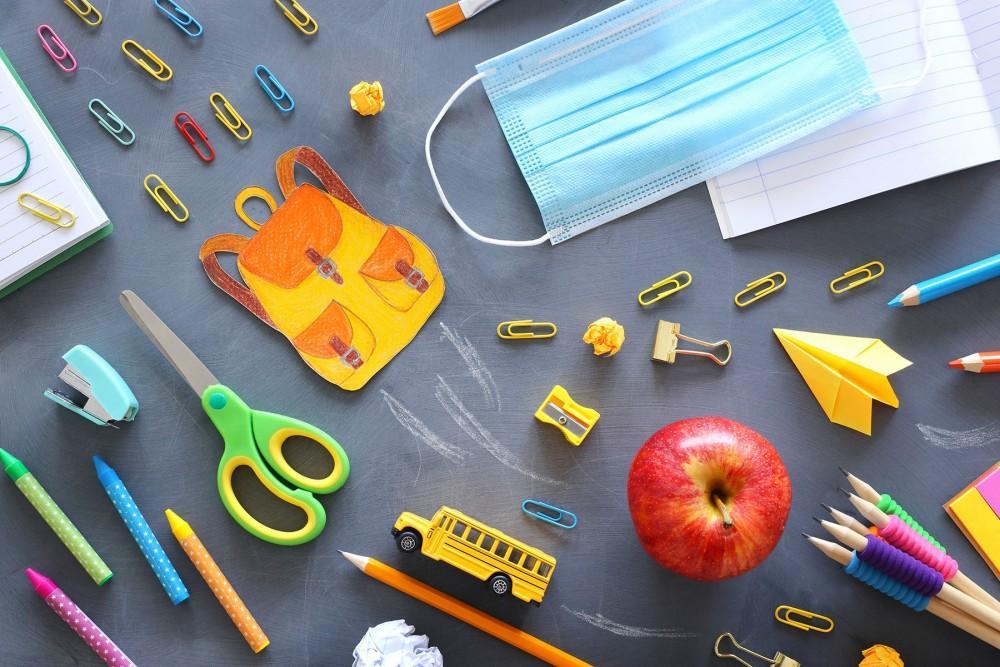In the best of years, going back to school is one of the most stressful times for families. This back-to-school period brings with it a number of unprecedented challenges: a return to in-person learning after last year’s exhausting remote or hybrid learning experiment, a rise in cases of COVID-19 among kids and teens because of the highly transmissible delta variant, the lack of vaccine authorization for kids under 12, and the polarizing debates over mask and vaccine mandates.
“Kids and parents were already dealing with the fall-out from the past year, like falling behind in learning and social development, because of remote school. In the last few weeks, everyone has had to face the health concerns about young kids and rising cases just as schools reopen,” says Alexis Wesley, M.D., child, adolescent, and adult psychiatrist at WCWCW. “Parents are overwhelmed and disappointed that this year isn’t turning out to be the return to school we’d hoped at the start of the summer.”
It’s impossible not to be stressed right now, and we’re not going to tell you otherwise. But we can provide some strategies to help you and your kids get through this trying period.
Talk to your kids about what to expect
Remote learning was challenging for many kids and teens, but transitioning back to in-person learning has its own set of challenges. Take time to calmly talk to your kids about what to expect for this school year, to the best of your knowledge, including information about what to expect in terms of masking and vaccination. It’s okay to acknowledge that things remain uncertain. Let your kids share what they’re nervous about. With things still changing, it’s important to check in regularly and continue to validate their feelings.
Help children with socializing
Returning to school after a year of remote learning is bound to create social anxiety for many kids. Things like bullying and cliques haven’t gone away, and now there’s also uncertainty about whether kids will have their normal social outlets, like sports and other extracurriculars.
It’s important to support your kids during this time by helping them safely socialize and creating some sort of consistency in their communal environment. For example, if your kids’ activities are canceled, or if they’re doing virtual or hybrid learning, you could help them maintain connections with friends by organizing small group meet-ups outdoors.
Look for signs your child is behaving differently
Because of the challenges of the past year, your child may display behavior changes that are a clue to deeper issues. In younger children, look for shifts in appetite — either acting hungrier or saying that they are not hungry — or changes in sleeping patterns, whether sleeping less or sleeping in more. Young children may also complain about tummy aches and headaches. Older children and teens may display distress by withdrawing from friends and family and pulling away from activities or things that they previously enjoyed, engaging in risky behavior or self-harming, or being agitated or more irritable than usual.
Your child may benefit from mental health support such as talk therapy, play therapy, WCWCW’s social and emotional skills groups for children and adolescents. We also recommend our colleagues who run the Parent-Child Journey program, which offers low-cost education for parents to help find effective strategies to address their child’s difficulties.
Develop routines
Developing healthy routines is key to navigating difficult times. Set a consistent sleep schedule, where you and your family go to bed and wake up at the same time. Exercise regularly, and encourage that for your kids. Eat first thing in the morning, eat regular meals, and make mealtime a family event, at least for dinner, as often as possible. Make sure to get your kids’ input when helping them develop their schedules.
Minimize screen time
Parents are really struggling with weaning their kids from screens after last year’s virtual-heavy time. We’ll get into this more in a future post, but now is the time to start cutting down on unnecessary screen time. Here are some ways to start:
- Make bedrooms tech-free zones.
- Use parental controls on devices.
- Reward kids for doing things that are not tech-related.
- Remove yourself from tech devices when your child is present.
Here are some additional suggestions from the Mayo Clinic.
Practice self-care and model this for your kids
Let’s face it, caring for others, especially your children, is exhausting, and it’s easy to neglect and even forget yourself. Build self-care, such as meditation, self-healing, baths, or any simple practice you find restorative, into your routine. Talk about the things you do that help you feel calm and grounded, and encourage your kids to try some for themselves.
Embrace ‘good enough parenting’
Psychiatrist D.W. Winnicott coined the term “good enough parenting,” which means not expecting perfection from yourself or your children. It’s okay to lower your expectations and let go of the need to be a “Super Parent” in exchange for sanity and self-care.
“Understand that everyone has fallen behind in the past year in certain areas, and be compassionate,” says Dr. Wesley.“In bumpy times, the best you can do is be honest about what you know, as well as what you don’t know, and provide love and support for yourself and your family.”
Get in touch with WCWCW to learn more about how our excellent and compassionate clinicians, mental health services, and groups can help you and your children get through this difficult transition period.








